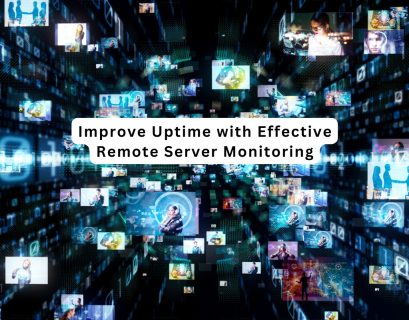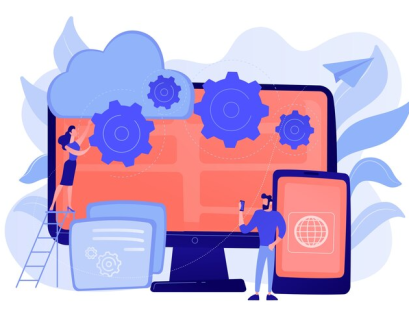Small businesses face unique challenges in today’s rapidly evolving digital landscape. From managing operations to securing data, every aspect of running a small business relies increasingly on technology. Investing in the right IT solutions for small businesses can streamline processes, enhance productivity, and provide a competitive edge. This article explores the most effective IT solutions for small businesses and their transformative potential.
Cloud Computing: Flexible and Scalable Solutions
Cloud computing has revolutionized how small businesses operate. By hosting data and applications on remote servers, businesses can access resources anytime, anywhere. Cloud solutions such as Google Workspace and Microsoft 365 enable seamless collaboration among team members, ensuring efficiency and adaptability.
Benefits of Cloud Computing:
- Cost Savings: Eliminates the need for expensive on-premises infrastructure.
- Scalability: Easily adjust resources to match business growth.
- Enhanced Security: Advanced encryption and regular backups protect critical data.
Adopting cloud computing allows small businesses to focus on their core operations without worrying about IT maintenance or overhead costs.
Cybersecurity Solutions: Safeguarding Business Data
With cyber threats on the rise, robust cybersecurity is no longer optional. Small businesses are particularly vulnerable, as they often lack the resources for comprehensive security measures. However, implementing essential cybersecurity solutions can mitigate risks effectively.
Key Cybersecurity Measures Include:
- Firewalls and Antivirus Software: Protect networks and systems from malware and unauthorized access.
- Multi-Factor Authentication (MFA): Adds an extra layer of security for user accounts.
- Regular Security Audits: Identifies vulnerabilities and ensures compliance with industry standards.
Outsourcing cybersecurity to a trusted provider is an excellent option for small businesses with limited in-house expertise.
IT Support and Managed Services
Reliable IT support is a cornerstone of business continuity. Managed IT services offer small businesses access to expert guidance, 24/7 monitoring, and proactive issue resolution. By outsourcing IT support, businesses can:
- Minimize downtime caused by technical glitches.
- Receive expert advice on technology upgrades and implementation.
- Focus on strategic growth while leaving IT management to professionals.
Managed services providers (MSPs) often offer scalable packages tailored to the specific needs of small businesses, ensuring cost-effectiveness.
Customer Relationship Management (CRM) Systems
Building strong customer relationships is vital for small business success. CRM systems like Salesforce or HubSpot help businesses manage customer interactions, track sales, and streamline marketing efforts. These systems provide valuable insights into customer behavior, enabling personalized services and improved customer retention.
Advantages of CRM Systems:
- Centralized data management for better organization.
- Automated workflows for enhanced efficiency.
- Detailed analytics to refine business strategies.
Implementing a CRM system ensures small businesses can nurture relationships and foster loyalty.
Website Development and Maintenance
An engaging, professional website is essential for small businesses to establish credibility and attract customers. Modern website development tools and services make it easier than ever to create and maintain an online presence.
Essential Features of a Small Business Website:
- Mobile responsiveness for a seamless user experience.
- Integrated e-commerce capabilities for online sales.
- Search engine optimization (SEO) for improved visibility.
Partnering with a web development expert ensures that small businesses can maintain a user-friendly and visually appealing website.
Business Intelligence Tools: Making Informed Decisions
Access to real-time data and analytics empowers small businesses to make informed decisions. Business intelligence (BI) tools like Tableau or Power BI provide actionable insights by analyzing data from various sources.
Why Use BI Tools?
- Identify trends and opportunities for growth.
- Monitor key performance indicators (KPIs) effectively.
- Optimize operations and improve decision-making processes.
BI tools enable small businesses to stay competitive by leveraging data-driven strategies.
VoIP and Communication Tools
Effective communication is crucial for any business. Voice over Internet Protocol (VoIP) services and collaboration tools like Zoom, Slack, or Microsoft Teams offer cost-effective and efficient communication channels.
Benefits of VoIP and Communication Tools:
- Reduced phone bills with internet-based calls.
- Enhanced collaboration through video conferencing and instant messaging.
- Scalability to accommodate growing teams.
These tools ensure that small businesses can maintain seamless communication internally and externally.
Embracing IT Solutions for Growth
Investing in IT solutions for small businesses is not just about keeping up with trends; it’s about preparing for sustained growth. Small businesses that leverage technology effectively can:
- Improve operational efficiency.
- Enhance customer experiences.
- Gain a competitive advantage in their industry.
Partnering with an experienced IT solutions provider ensures that small businesses receive tailored recommendations and ongoing support.
Conclusion
The right IT solutions for small businesses can transform operations by streamlining processes, securing data, and fostering growth. From cloud computing and cybersecurity to CRM systems and business intelligence tools, these technologies enable small businesses to thrive in a competitive market. By embracing these solutions, small businesses can confidently navigate the digital age and achieve long-term success.










